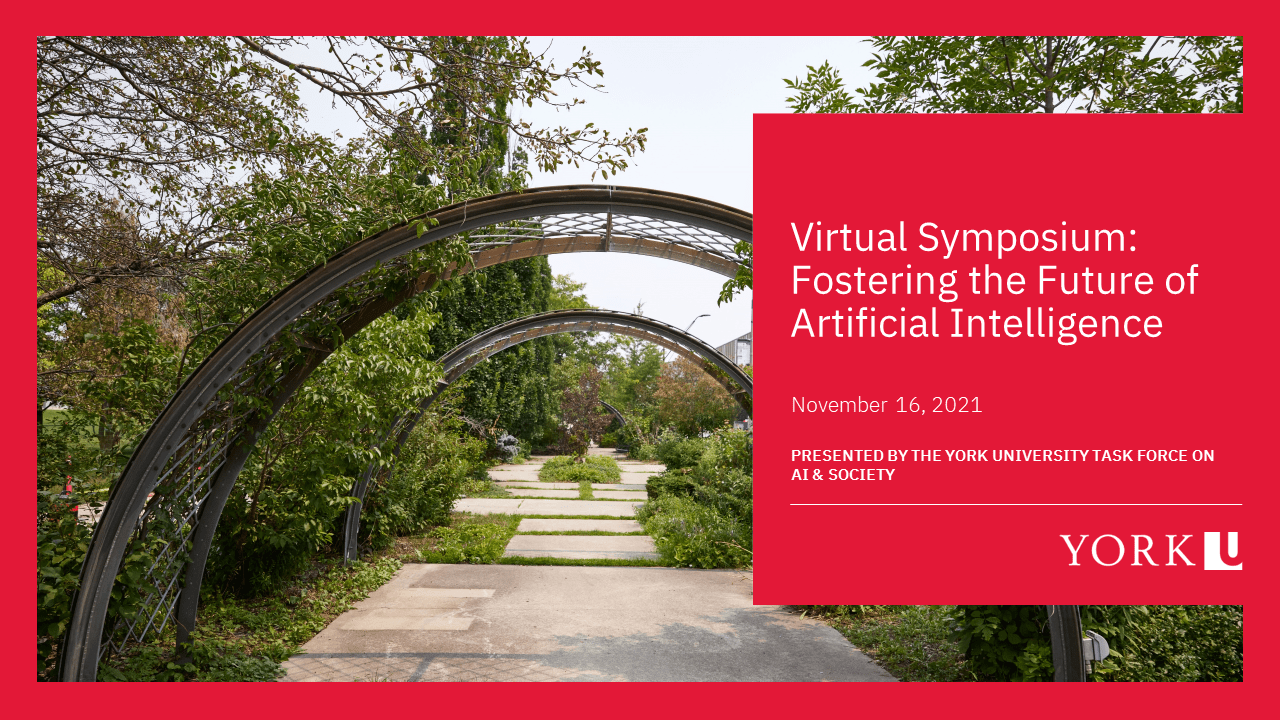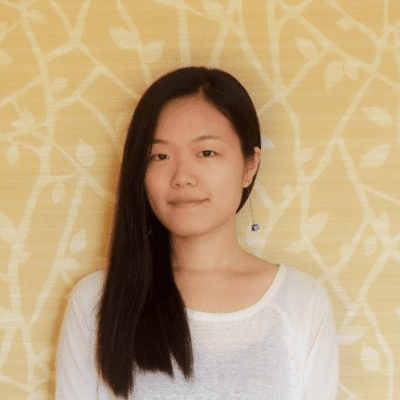
 Tianchu Gao is an IPilogue Writer and a 1L JD Candidate at Osgoode Hall Law School.
Tianchu Gao is an IPilogue Writer and a 1L JD Candidate at Osgoode Hall Law School.
Rising to the challenges and opportunities posed by the disruptive technology of artificial intelligence, York University’s Artificial Intelligence and Society Task Force leveraged collegial expertise from a wide range of disciplines to explore the possibility of research, development, and innovation of artificial intelligence and its impacts on humanity and society. The Task Force, Co-Chaired by Prof. Pina D’Agostino and Prof. James Elder, hosted a virtual symposium “Fostering the Future of Artificial Intelligence: Report from the York University Task Force on AI & Society” on Nov. 16. The report summarizes current AI research, teaching, and learning activities at York and offers advice on further expansion of AI-related initiatives in the near future. After welcoming remarks from York’s President & Vice-Chancellor Rhonda Lenton, VPRI Amir Asif, and Mayor Frank Scarpitti of Markham, the symposium featured a keynote speech by Dr. Manuela M. Veloso, Head of JP Morgan Chase AI Research and Herbert A. Simon University Professor in the School of Computer Science at Carnegie Mellon University. It was followed by a panel discussion led by Prof. D’Agostino and Prof. Elder. The panel featured Dr. Veloso, Neetika Sathe (Vice President, Alectra’s GRE&T Centre), James Goel (Director of Engineering Technical Standards, Qualcomm) and Androu Waheeb (JD Candidate 2023, Osgoode Hall Law School). The livestream of the complete symposium is now available on YouTube.
Artificial intelligence is “the theory and development of computer systems able to perform tasks normally requiring human intelligence, such as visual perception, speech recognition, decision making, and translation between languages.” Professor Veloso began her speech by tracing the origin of AI to a ten-man workshop that lasted two months at Dartmouth College in 1956. The workshop proceeded based on the conjecture that “every aspect of learning or any other feature of intelligence can in principle be so precisely described that a machine can be made to simulate it.” The workshop’s goal to simulate human perception and cognition on machines continues to challenge scientists today. Despite the revolutionary breakthroughs in the past decades, artificial intelligence is still a young science that has a long journey to advance ahead.
Professor Veloso shared in the speech a few projects she and her team have developed for JP Morgan Chase when she worked as the head of its AI Research department since 2018. One example is the use of image-based decision making and prediction in stock market analysis. Machines have learned to recognize and classify objects; we see the implementation of this technology in self-driving cars, as the car needs to “see” the environment—identify roads, cars, and pedestrians—to navigate in the traffic safely. Similarly, this technology is used to analyze the stock market as pure images. The researchers labeled the images with “buy” and “no buy” decisions made by humans from historical data, and they can use visual signals to predict transactions in the stock market with 95% accuracy.
Other important tasks that AI can tackle for the financial market include the generation of synthetic data for development and exploration. Synthetic data is easier to access and process than real data. It allows banks to explore the impacts of the decisions they made and develop new approaches to problems like fraud and money laundering. Professor Veloso’s team is also working on the automated standardization of financial data represented in different formats. It is an AI-driven task because the computer program needs to recognize visual and semantic cues in order to understand the meaning of a document and convert it into the standard form. These are a few examples of the various tasks that AI can accomplish and continuously refine for the financial market and beyond.
The challenges AI poses for us do not concern technology alone. As panelist James Goel pointed out, the tremendous investments (nearly a trillion dollars) that AI-related markets will attract in the next five to ten years will generate transformative impacts on society at large. The question remains: what could academia and government policy do in response to this social challenge?
York University is taking the initiative to foster an interdisciplinary approach to explore AI as a key area of accelerated research and its social implications. The report by the Task Force is a first step of the journey; it studies the existing AI terrain in York in terms of research, teaching, and learning activities and offers guidance on how to grow AI initiatives in the university. York’s new Markham campus will further provide greater resources for AI-related research and innovation. Substantial activities suggest that York has a great potential to be a great center of teaching and research in AI.

